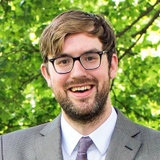- Home
- Faculty And Research
- Faculty
- Benjamin Barber
Benjamin Barber
Coming to IE with a PhD in political science, Associate Professor Barber tries to bring an understanding of politics behind market actions. His research revolves around one of the central aspects of political economy: when do politicians favor some industries over others, and what are the effects of such favoritism? “Politicians are always favoring some industries over others”, he says, “the question is why? Around the world political & societal context changes how much politicians care about different industries. A firm may be taxed for political benefit in one context, while in another context it will be subsidized”.
His research focuses on what structural characteristics, such as voting systems, incentivize politicians to support geographically concentrated or dispersed industries. Further, he believes this research can help us understand why cities die. “Cities are just a collection of important firms that drive economic activity in the area. When those firms struggle, so does the city. Understanding when and why politicians react differently to these struggles can give us insight into how quickly or slowly cities can recover”.
In his courses, he seeks to develop understanding of underlying political contexts in his students. “Understanding what incentivizes political actors to favor or discriminate against firms has far reaching applications to businesses worldwide. When you can know what drives politicians decisions, you can know how viable your business will be within these contexts”.
ACADEMIC EXPERIENCE
• Associate Professor in Strategy, IE University, 2022 – Present
• Assistant Professor in Strategy, IE University, 2014 – 2022
ACADEMIC BACKGROUND
• PhD Comparative Politics, Duke University (USA), 2014
• M.A. – Economics, Duke University (USA), 2013
• B.A. Political Science, Michigan State University (USA), 2008
• B.A. Economics, Michigan State University (USA)
SUSTAINABLE DEVELOPMENT GOALS (SDGs)
9- Industry, Innovation and Infraestructure
11- Sustainable Cities and Communities
16- Peace, Justice and Strong Institutions
